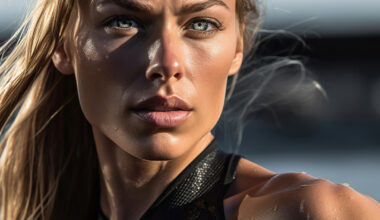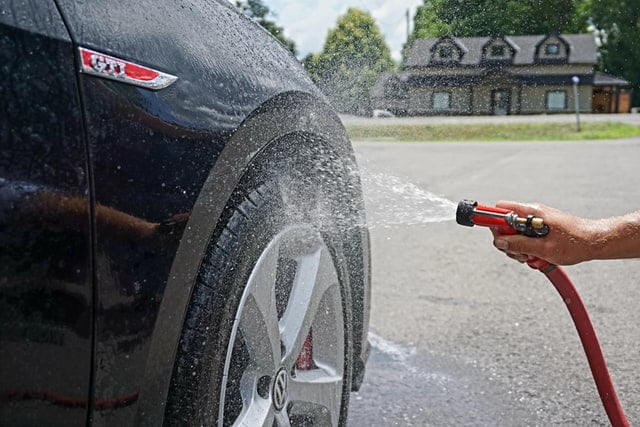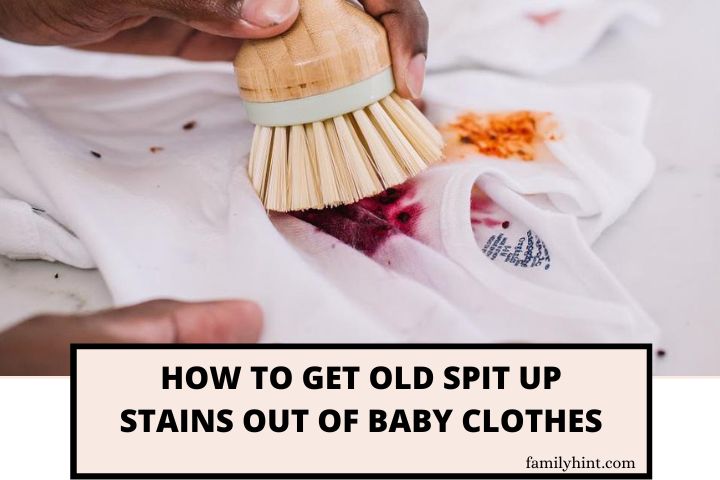Vinegar can be used for a variety of household tasks, including cleaning and laundry. Vinegar is a great alternative to chemical-filled detergents, but it’s important that you don’t use too much. Too much vinegar in your wash will not only make your clothes smell like vinegar, but it can also damage them.
When it comes to laundry, vinegar can be a useful tool. Vinegar is a natural cleaning product that can be used to remove stains and freshen clothing.
However, there are some things you should know about using vinegar in the laundry. Here are some dos and don’ts for using vinegar in your laundry:
Here is a full guide for all you need to know about using vinegar for washing and cleaning clothes.
What Is Vinegar?
Vinegar is a liquid made from diluting the ethanol found in distilled alcohol with water. There are many types of vinegar available on the market today, including apple cider vinegar, balsamic vinegar, red wine vinegar, and white distilled vinegar.
The science behind vinegar
Vinegar is made by fermenting alcohol with bacteria, so it’s basically just an alcoholic solution of acetic acid. Acetic acid helps break down stains in much the same way that hydrogen peroxide does. Vinegar also has mild bleaching properties, but it’s not strong enough to completely whiten white fabrics.
How to use vinegar in the laundry
- To get started, simply add 1 cup of vinegar to your washer when you are filling it with water for your next load of laundry.
- If you’re using hot water, be sure that the vinegar isn’t overheated because it could damage your machine or clothing (check out our guide on how much heat is too much heat for laundry).
- If you have hard water stains on your clothes or soap scum on your towels, try adding half a cup of baking soda before adding the vinegar. This will help neutralize any alkaline residue left behind by detergent or hard water.
- Only add 1/2 cup of white vinegar per load of wash, this amount will give you some odor-fighting power without damaging your clothing or linens
- Never pour straight white vinegar on any fabric, always dilute it with water first
- Always test a small area of clothing with diluted white vinegar before using it as an all-over stain fighter.
Ways to use vinegar in your laundry
We all know that vinegar is a great cleaning agent for many things. But did you know it can also be used in your laundry?
Vinegar is a natural fabric softener and deodorizer. It removes tough stains, brightens colors, and leaves clothes smelling fresh.
1. Fabric Softener: Add one cup of white vinegar to the rinse cycle or add ½ cup to the wash cycle with detergent. This will soften fabrics, eliminate static cling and reduce wrinkles.
2. Stain Remover: Vinegar works as a natural stain remover on clothing, carpets, and other fabrics by breaking down substances such as protein stains (blood). Simply apply undiluted white vinegar directly to the stained area using a clean cloth or sponge, then let sit for 10-15 minutes before laundering as usual or blotting with clean water until the stain is gone.
3. Odor Neutralizer: Add 1 cup of white vinegar per a load of laundry to remove odors from clothing and linens such as body odor, cigarette smoke, and cooking odors from dish towels or aprons. If you want your clothes to smell like flowers instead of garlic.
Benefits of Vinegar in Laundry
Vinegar can do a great job to remove soap residue from clothing, soften fabrics, remove odors, and brightening colors. When you add vinegar to your wash load, you may notice some of these benefits:
Removes Soap Residue
Your laundry goes through several cycles during each washing machine cycle. Over time, soap residue builds up on fabric fibers, which can lead to dingy-looking clothes.
The vinegar will also help prevent soap buildup in the future by neutralizing alkalinity in detergents and softening water hardness.
Breaks Down Tough Stains
Oxygenated bleach breaks down tough stains like grease and grass stains in just one wash cycle. Vinegar is also a great stain remover because it reacts with acids in food stains such as tomato sauce or mustard to lift them out of fabric fibers so they rinse away easily in plain water afterward.
Removing Odors
Vinegar is also useful for removing odors from clothes that have been stored in a closet for a long time. By adding 1 cup of vinegar to the rinse cycle, you can eliminate odors and restore the fresh smell of your clothing.
Fabric Softener
Vinegar is a wonderful natural fabric softener. It works well for both fresh and lightly soiled items, as well as for delicate fabrics like silk. Vinegar can also be used to remove stains from clothes, such as wine or coffee.
Frequently Asked Questions About Vinegar
Do use vinegar for stain removal
Vinegar is a great stain remover because it contains acetic acid, which breaks down organic compounds that cause stains.
Can vinegar be used on silk and wool garments?
Since these fabrics are delicate, they can be damaged by the acidity of the vinegar. Use distilled white vinegar; otherwise, you risk weakening the fibers of these fabrics. Also, avoid using undiluted vinegar directly on any fabric as it may bleach them out or discolor lighter colors with excess exposure to sunlight after washing them in cold water.
Can Vinegar Whiten Clothes?
Yes, vinegar can help clean and whiten your clothes. Vinegar is a natural cleaning product that’s easy to use. But it can also make your clothes whiter, brighter, and fresher smelling.
How Do You Make White Clothes Whiter with Vinegar?
Add 1/2 cup white vinegar to the final rinse cycle of a regular wash load and let it sit for 30 minutes before adding laundry detergent and starting the machine. This will help prevent stains from setting in and make whites appear brighter.
For extra softness, add 1 tablespoon of white distilled vinegar (not apple cider vinegar) to the fabric softener compartment of your washing machine instead of fabric softener sheets or liquid fabric softener.
Can You Use Vinegar and Laundry Detergent Together?
Yes, you can use vinegar along with laundry detergent in your washing machine when you need a boost of cleaning power on tough stains or odors.
Just mix 1/4 cup distilled white vinegar with 1/4 cup baking soda in a small bowl and sprinkle on top of wet laundry before tossing it into the washer (do not pour directly onto clothes).
Can Vinegar Damage Your Washing Machine?
Vinegar is a common household substance that can be used to clean a variety of things, including clothing. Some people use vinegar to remove stains, while others add it to their laundry to help soften clothes and make them smell fresh.
Vinegar has antibacterial properties that make it an effective cleaner, but many people are concerned about its effects on washing machines and other household appliances.
Can I Add Bleach and Vinegar to Laundry?
Many people like to add bleach or vinegar directly to the laundry water when washing clothes. However, this practice is not recommended because both bleach and vinegar can cause damage to your washing machine if they come into contact with metal parts inside the appliance.
What Does Washing Clothes with Vinegar Do?
Vinegar can be used as a natural alternative for washing clothes because it acts as a disinfectant and deodorizer when added to the washing machine drum before adding clothes.
It also helps remove dirt from clothing without leaving behind any residue on your clothes after washing them.
Can You Soak Black Clothes in Vinegar?
Soaking black clothes in vinegar can help remove stains and odors. The acidity of the vinegar will dissolve the alkalinity of sweat, which causes body odor.
It also helps prevent stains from setting by breaking down the proteins and sugars that cause them. The same principle applies to blood stains on white clothes, but this method works best on colored clothing.
Can I Put Baking Soda and Vinegar in Washing Machine?
You can add 2 cups of baking soda to your washing machine during a hot water cycle to help remove odors from laundry and make towels softer. You should never put vinegar in your washing machine because it could damage your machine.
Can You Use Vinegar on Colored Clothes?
Vinegar is safe for use on all types of fabric, including colored garments. However, if you have light-colored fabrics that are prone to fading, such as khaki pants or shirts, it’s best not to use this solution because it may cause discoloration over time.
If you’re unsure about using vinegar on an item, test it first by applying a small amount of vinegar directly onto an inconspicuous area like the inside seam before using it.
Is Distilled Vinegar the Same as White Vinegar?
Vinegar is made from a fermented liquid that has been diluted with water. The way this liquid is created determines the type of vinegar we are talking about:
White vinegar: Also known as distilled white vinegar, this type of vinegar is made from grain alcohol and has a high concentration of acetic acid. It’s commonly used for cleaning because it dissolves grease and breaks down dirt on surfaces easily. You can also use it to make homemade cleaners like window cleaner or toilet bowl cleaner.
Distilled white vinegar is different from other types of vinegar because it contains a higher amount of acetic acid than other vinegars do. This means that it can be used in more situations without any negative effects on your health or the environment in which you are using it (such as in your home).
What Is the Best Vinegar for Cleaning?
Distilled white vinegar is an excellent cleaner for both indoor and outdoor surfaces. Its acidic nature makes it good at breaking down grease on kitchen counters, cleaning bathroom fixtures, and removing soap scum in the shower.
What Should You Not Use Vinegar On?
The following items should not be cleaned with vinegar:
Marble, granite, and other stone surfaces. Vinegar will discolor these surfaces over time.
Wood floors that are unfinished or have polyurethane or wax coatings. These finishes will be stripped with vinegar or a combination of vinegar and water (see below).
Any wood furniture that is painted or varnished.
What Can I Use Instead of Distilled White Vinegar?
Distilled white vinegar is the best option for cleaning because it is 100% acetic acid. Other types of vinegar contain other elements that can leave residue behind after you use them.
If you want to cut down on costs, try apple cider vinegar or white wine vinegar instead of distilled white vinegar.
How Do You Make White Vinegar Cleaner?
The easiest way to make your own cleaner with vinegar is by mixing 1 part vinegar with 3 parts water in a spray bottle (or similar container). The ratio doesn’t have to be exact just eyeball it so that the mixture looks like equal parts water and vinegar when mixed together.
Then add approximately 20 drops of essential oil if desired (try lemon or lavender). Shake well before each use.
Can I Use White Vinegar Undiluted?
Yes, but it’s not recommended. When you mix vinegar with water, the acidity level increases. This makes it more effective at removing dirt and killing bacteria which is good. But it also makes it more likely that the vinegar will damage any surfaces you’re cleaning or stain clothing if you spill it on yourself.
Should I Dilute White Vinegar for Cleaning?
Yes. You can use white vinegar straight from the bottle, but for some jobs, it’s easier to use a diluted vinegar solution. Diluting white vinegar is also better for your skin and the environment.
What Can I Mix with White Vinegar for Cleaning?
Vinegar isn’t just good at killing germs and bacteria; it’s also great at dissolving other substances, so you can mix it with other cleaning ingredients to make them more effective or powerful.
Vinegar is often combined with baking soda, which creates a chemical reaction that releases a lot of bubbles. The foam helps loosen dirt on surfaces like tile grout, which makes it easier to scrub away with a toothbrush or brush.
You can also combine vinegar and lemon juice to create a cleaner that smells good (the citrus scent masks any lingering vinegar smell). It can be used on countertops, floors, and walls. Just mix one part lemon juice with one part water, then add about three capfuls of white vinegar.
Can You Drink Water with Vinegar?
No. Vinegar is an acid and drinking it can cause severe burns in your throat and mouth. It is also not recommended for people suffering from stomach ulcers or kidney stones.
Can We Mix Water in Vinegar?
You can mix water in vinegar but this will not change the pH value of the mixture. The solution will still be acidic and can damage your skin if you leave it on too long.
Can You Mix Vinegar and Baking Soda?
Yes, you can mix vinegar and baking soda to make a chemical reaction that will release bubbles of carbon dioxide gas. This is called effervescence and is what happens when you add baking soda to vinegar in a science experiment.
Can I Spray My Dog with Vinegar?
Vinegar is an acidic liquid that can be used as a household cleaner and disinfectant. In addition to cleaning, vinegar can be used to treat several ailments in dogs. However, there are some risks associated with using vinegar on your dog.
What Happens When You Mix Oil and Vinegar?
Oils and vinegar are two very different liquids that don’t mix well together. When you combine oil and vinegar, the results aren’t pretty.
You end up with a cloudy liquid that looks nothing like what was poured into the bowl. As you’ve probably guessed, this doesn’t bode well for your dog’s skin or coat if it gets sprayed down with a mixture of vinegar and water.
Does Olive Oil Mix with Vinegar?
Olive oil is technically an oil, but it behaves differently than other oils when mixed with vinegar. Instead of creating an unappealing cloudy mess, olive oil helps create a foam when combined with vinegar which makes it easy to rinse out of your dog’s fur after bathing him or her in this mixture.
Can I Mix Vinegar with Oil?
Vinegar and oil are both liquids, so they can mix together. However, there are two different types of vinegar: distilled and malt. Distilled vinegar is made from the fermentation of starch or sugar, while malt vinegar is made from the fermentation of grains.
The difference between the two is that distilled vinegar is clear to pale yellow in color and has a sharp, acidic taste. Malt vinegar is dark brown in color with a more pungent flavor than distilled vinegar.
Is Oil and Vinegar Homogeneous?
Yes, oil and vinegar are homogeneous because they’re both liquids.
Can Oil and Vinegar Be Refrigerated?
Yes, both oils and vinegar can be refrigerated if you wish to store them for later use.
Can You Wash Your Face with Vinegar?
Yes and no. Vinegar is a great way to cleanse your skin, but it’s important to use the right type of vinegar and dilute it properly to avoid irritation.
Vinegar is acidic, which means it may cause irritation or burning if used at full strength on your face. If your skin is sensitive or dry, dilute the vinegar with water before applying it to your face.
You should also rinse off any excess vinegar with cool water after rinsing with warm water because hot water can further irritate sensitive skin.
How Do You Dilute Vinegar for Skin?
You’ll need about 1/4 cup of vinegar for every two cups of water, but this can vary depending on how much you’re using and how strong you want it to be. For example, if you’re using a cotton pad or ball, you want it to be fairly weak so that it doesn’t irritate your skin too much.
On the other hand, if you’re using a washcloth or loofah, which will also help exfoliate dead skin cells from your face and neck area, then you can use more diluted vinegar so that its effects are more potent.
Does the Smell of Vinegar Dissipate?
Once diluted with water (or any other liquid such as witch hazel), vinegar loses its smell almost immediately once applied to your face or body because it’s absorbed into your pores so quickly.
Can I Apply Vinegar on My Face?
Vinegar can be used as a toner to remove dirt and excess oil from the skin. It will also help unclog pores and reduce inflammation. Mix equal parts of vinegar and water, then apply to your face with a cotton ball or cotton pad. Leave on for about 10 seconds before rinsing with cool water.
Can I Add Essential Oil to Vinegar for Laundry?
Essential oils can be added to vinegar to make a natural fabric softener. Add 5 drops of essential oil per 1 cup of vinegar, stir well and use in place of store-bought fabric softener. You can also add 1/4 cup white vinegar to your laundry rinse cycle instead of fabric softener for better results.
What to Add to Vinegar to Make It Smell Better?
To make any kind of vinegar smell better, add some fresh citrus fruit peels like lemon or orange peelings into it and let it sit overnight (or longer). The citrus oils in the peels will help give your vinegar a fresher scent.
Why Do You Put Vinegar in Laundry?
It’s a great way to remove stains from clothing, soothe skin and hair, and generally clean your home.
But it’s also a great addition to your laundry load, vinegar can help remove dirt and bacteria from clothing, as well as brighten whites.
Can You Use White Vinegar to Clean Your Washing Machine?
There are many ways that you can use white vinegar in your washing machine. It’s an excellent stain remover, so you can use it on heavily stained clothes.
You can also add vinegar when doing laundry to keep the machine smelling fresh and clean. But one of the most popular uses for white vinegar is its ability to sanitize laundry water.
Is White Vinegar Good for Skin?
White vinegar is an astringent, which means that it has a drying effect on skin and hair.
It’s also useful for people with sensitive skin who don’t want ingredients like alcohol or fragrance in their products because these things can irritate sensitive skin.
Does Vinegar Work Better Than Bleach?
Vinegar is a natural cleaner that can be used to remove stains, deodorize and cleanse. It has many uses around the house, but can it replace bleach in your cleaning recipe? The short answer is no.
Vinegar is not a bleach substitute and should never be used as one. Bleach should only be used on white fabrics or surfaces.
Can You Use Normal Vinegar for Cleaning?
You can use vinegar to clean your home inside and out, but the type of vinegar you use makes a big difference. If you’re looking for an all-purpose cleaner that works well with most household messes, opt for distilled white vinegar.
This type of vinegar is clear and has no scent, so it won’t leave any odors behind once it dries up. Distilled white vinegar is also inexpensive, making it perfect for cleaning around the house without breaking the bank.
How Do I Whiten My Skin with White Vinegar?
People often ask how they can whiten their skin with white vinegar, after all, many people think that brown spots on their hands or feet might be caused by hyperpigmentation due to sun exposure over time.
Can Vinegar Burn Your Skin?
Vinegar is acidic in nature, so it has the ability to burn your skin if you come in contact with it.
Can You Soak Clothes in Vinegar Overnight?
Yes, Vinegar is an excellent natural fabric softener that will leave your clothes smelling fresh and clean without any harsh chemicals or perfumes added into the mix. Simply mix two cups of white distilled vinegar with hot water and let your clothes soak overnight before throwing them in the washing machine.
How Do You Make Scented Vinegar for Laundry?
Scented vinegar can be made by adding essential oils directly onto white vinegar or leaving some spices such as cloves or cinnamon.
Can Apple Cider Vinegar Be Used Instead of Distilled White Vinegar?
The difference between apple cider vinegar and distilled white vinegar is that the former is made from fermented apples, while the latter is made by distilling alcohol (usually whiskey) to produce acetic acid. This means that they are not interchangeable in recipes.
Can You Turn White Vinegar into Distilled Vinegar?
No, you cannot turn white vinegar into distilled vinegar because they are different products with different uses.
White vinegar has a milder flavor and can be used for various household chores such as cleaning windows, making salad dressing, and removing stains from clothing.




